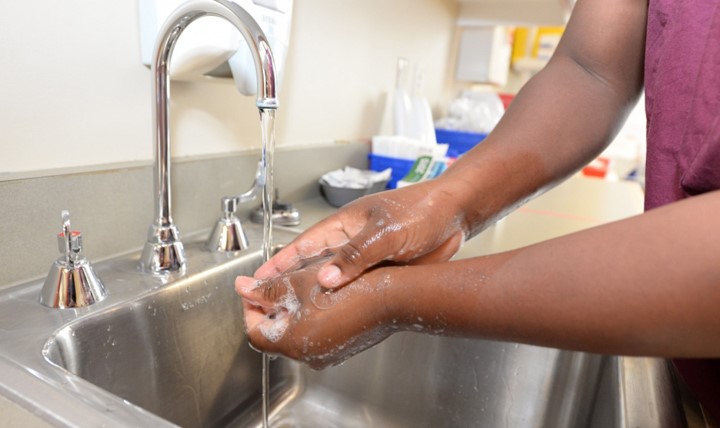By Peter Gleick
Emergency supplemental appropriations for FY 2020 proposed by the US House of Representatives

The newly proposed House of Representatives’ emergency supplemental appropriations bill was just released. Among the $3 trillion dollars it allocates are several provisions related to water and wastewater agencies, residential water use, and agriculture. The final bill will certainly be different, after the Senate and lobbyists get through with it, but as of now, here are some of the major water-related provisions in the bill.
Broadly speaking, the bill provides specific tranches of money for key vulnerable groups: Native American tribes, essential workers and families, homeowners, and low-income households. These are all groups that have experienced especially difficult impacts from both the coronavirus itself and the economic impacts of the response.
Missing from the proposed supplemental appropriations is help for water agencies that are experiencing unanticipated consequences, including lost revenue from changes in urban water demands and a moratorium on disconnections and shut-offs, or problems with financing for new capital investments for water and wastewater systems.
The pandemic provides an opportunity to rethink, redesign, and reinvest in the nation’s water infrastructure, but there is as yet no sign that our legislators will act on this opportunity.
Below are the key water-related provisions in the House bill:
Division A-Coronavirus Recovery Supplemental Appropriations Act, 2020
The Bureau of Indian Affairs would receive $20,000,000 to provide and deliver potable water. Indian Health Services would receive “Not less than $10,000,000” for the same purpose.
Division F-Assistance to Agricultural Producers and Other Matters Related to Agriculture
A new provision sets up the “Emergency Soil Health and Income Protection Pilot Program” – a voluntary emergency soil health and income protection pilot program under which eligible agricultural land is enrolled to assist owners and operators of eligible land to conserve and improve the soil, water, and wildlife resources.
Division J-Support for Essential Workers, At-Risk Individuals, Families, and Communities
Section 100203 provides funding for “Emergency Assistance to Families Through Home Visiting Programs,” to be used “to provide emergency supplies (such as diapers, formula, non-perishable food, water, hand soap and hand sanitizer) to families served.”
Division K-COVID-19 Hero Act (Housing, Economic Relief, and Oversight Act)
Section 110202 establishes a Homeowner Assistance Fund with $75 billion, some of which can be used by the Department of the Treasury for homeowners to prevent mortgage defaults, foreclosures, and displacement of individuals and families facing financial hardship. Specifically, funds may be used for mortgage assistance, assistance with payment of taxes, hazard insurance, homeowners fees, and utility payment including electric, gas, water, and internet service.
Division M-Consumer Protection and Telecommunications Provisions establishes a Price Gouging Protection program that applies to critical goods and services, including food and water.
Division S-Other Matters
A key section is Sec. 190701 (Home Energy and Water Service Continuity). This section requires that “any entity receiving financial assistance pursuant to any division of this Act shall, to the maximum extent practicable, establish or maintain in effect policies to ensure that no home energy service or public water system service to a residential customer, which is provided or regulated by such entity, is or remains disconnected or interrupted during the emergency period described in section 1135(g)(1)(B) of the Social Security Act because of nonpayment, and all reconnections of such public water system service are conducted in a manner that minimizes risk to the health of individuals receiving such service.”
This section does not, however, require forgiveness of any debt incurred during the pandemic, or absolve an individual of any obligation to an entity for service, nor preempt any State or local law or regulation governing entities that provide such services to residential customers.
Another two major sections (Sec. 190703 “Low-Income Household Drinking Water and Wastewater Assistance” and Sec. 190704) provides $1.5 billion for grants to States and Indian Tribes, and to residential water users to assist low income households, particularly those with the lowest incomes, that pay a high proportion of household income for drinking water and wastewater services, by providing funds to owners or operators of public water systems or treatment works to reduce rates charged to such households for such services. It also (in Section 190704) includes the protections for households from disconnections or service shutoffs during the pandemic due to nonpayment.
Division T-Additional Other Matters
Sec. 2000007. Safety Upgrades in GSA Facilities
A final provision requires the Administrator of the General Services Administration (GSA) to take such actions as are necessary “to prevent airborne transmission of COVID–19 through air conditioning, heating, ventilating, and water systems in facilities owned or leased by the General Services Administration to ensure safe and healthy indoor environments for Federal employees… Any projects carried out by the Administrator to carry out this section shall prioritize indoor air and water environmental quality in facilities and energy-saving building technologies and products.”


